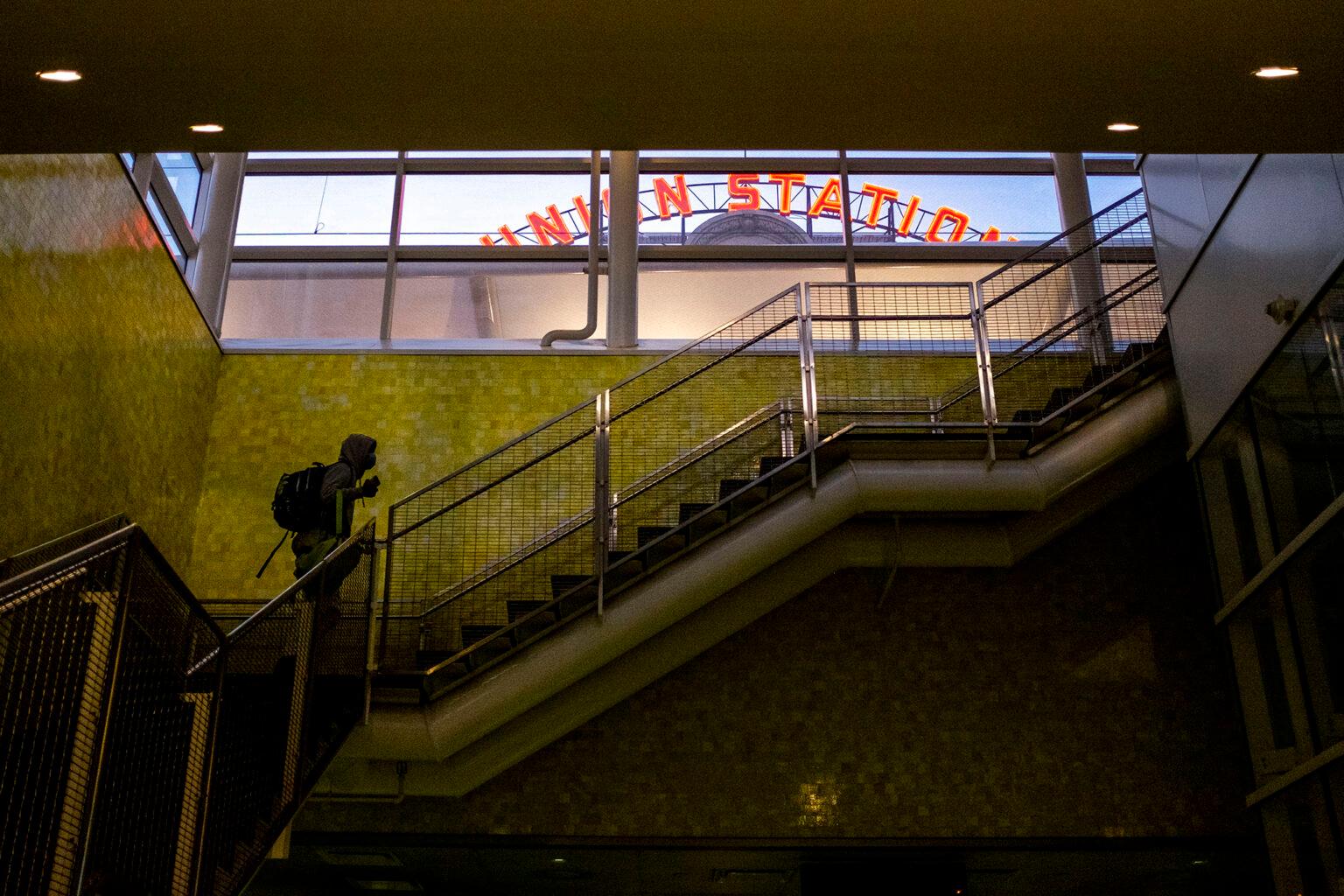
Rising crime | The politics | What the data says
With crime on the rise in Colorado, both parties have public safety at the top of their policy — and political — agendas this election year.
They’re trying to find an approach that will resonate with voters like Linnea Jones-Iniguez. The 28-year-old IT professional hasn’t personally been impacted by the increase in crime, but said it’s on her mind.
“As I'm getting older it becomes something I am more aware of,” she said on a recent weekday on her commute to downtown Denver.
Jones-Iniguez rides the light rail to Denver’s Union Station. The Denver Police Department has arrested more than 500 people at the transit center since the start of this year in an effort to crackdown on the proliferation of property and drug crimes, according to a statement from DPD.
Jones-Iniguez said she hasn’t felt truly uncomfortable, but it has weighed on her decisions.
”There's been an influx of the homeless being in Union Station,” said Jones-Iniguez. “I chose when I would go into the office versus working at home based on that … Because if I had to work late, I would be more comfortable just working from home.”
Figures show that communities across the state have seen a significant increase in the crime rate in recent years. According to the FBI’s annual report on crime in the United States, most states have seen an uptick in some categories of offenses, but Colorado is unusual in having an overall increase. The state’s crime rate increased 8.6 percent from in 2019 through 2020 while the country’s overall rate dropped during that time by 6.2 percent.
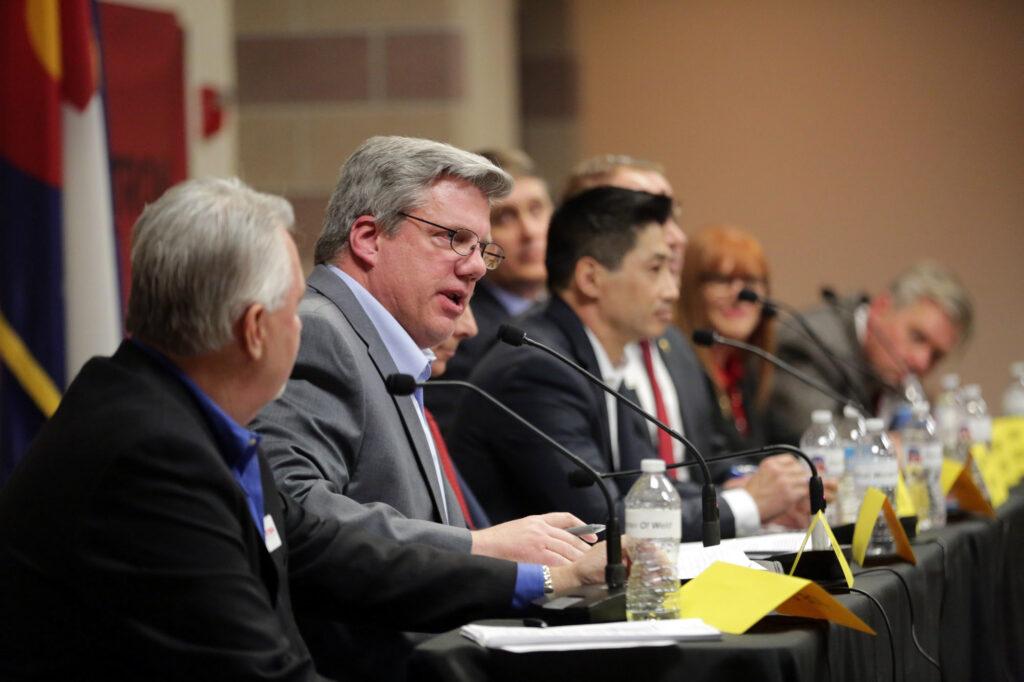
Republicans focus on bipartisan justice reforms and Democrats statewide
The question of what’s driving the rise in crime — and whether recent law changes have anything to do with it — have been a major focus at the legislature, and is expected to weigh as one of the top issues for campaigns ahead of the upcoming midterm election.
Already, a Republican-aligned political group has announced a six-figure ad buy calling specifically on Gov. Jared Polis and four Democratic lawmakers to “reverse the decriminalization of fentanyl” by changing a 2019 law that downgraded possession of four grams or less of most drugs from a felony to a misdemeanor.
The 2019 law had Republican and Democratic sponsors and numerous Republican lawmakers voted for it, but Michael Fields, whose conservative think tank, Advance Colorado Institute, is aligned with the group running the ads, said it’s still fair game to target the Democrats involved.
“I don't think the average person cares who from what party voted for what, they want solutions and they want things to get fixed,” said Fields.
While these sorts of “take action” ads aren’t considered campaign advertising under the law, they often aim to associate politicians with a problem or unpopular issue. Polis is up for reelection this fall, as are the lawmakers, who are in vulnerable districts.
“We have to address this and not act like it's not existing or act like it's just COVID's fault or whatever else. I think leaders who step up and take accountability will fare a lot better than ones who try to deflect,” said Fields.
And with an election looming, Republicans see an issue where Democrats — who control nearly all of state government — might be vulnerable.
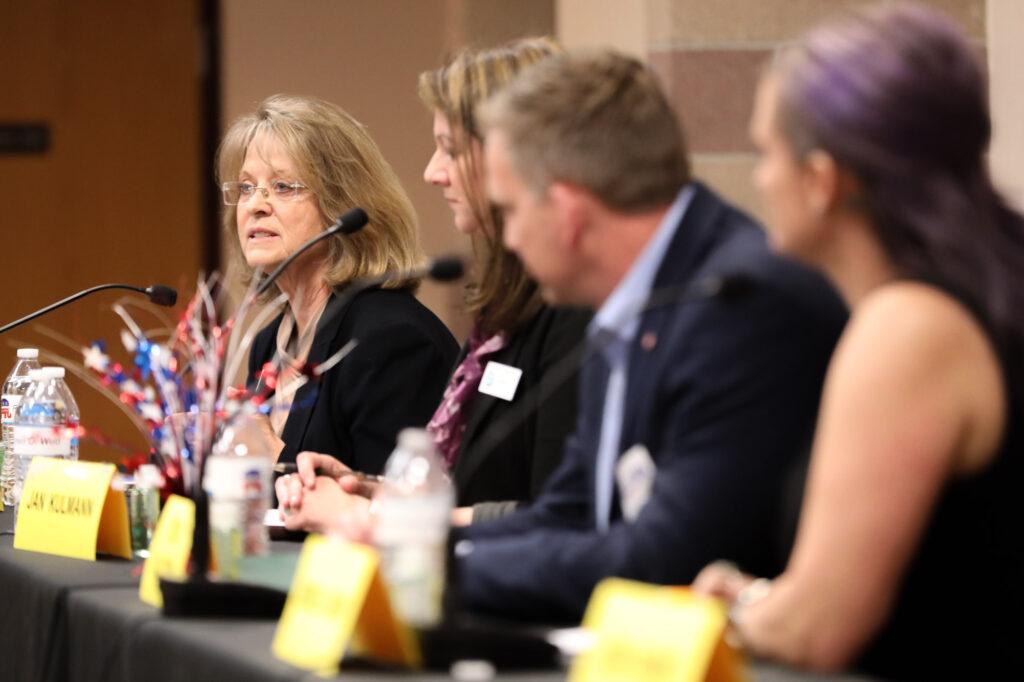
“I think the policies the Democrats have passed in the legislature are exactly the reason crime is rising so high in Colorado,” said Kristi Burton Brown, chair of the Colorado GOP.
Even some Democrats acknowledge that public safety could be a difficult issue for their party’s candidates this fall.
“I think it generally is the kind of issue that, if you take it and run with it, it advantages the party that's out of power,” said Pueblo Mayor Nick Gradisar.
And Gradisar said he sees Republicans, who are hoping to win back state offices and legislative seats this fall, running with it.
“They'll just scream about what a problem it is and how bad it is. And I think most people will agree with that. Some are working to find solutions and some just want to ride it right until Election Day.”
Personally, Gradisar believes the decisions lawmakers in both political parties have made in recent years have a cumulative effect when it comes to public safety and may have played an unintentional role in the rise in crime.
“I believe in redemption, you know, but we also have to go back to some of that, if you do the crime, you gotta do the time,” Gradisar said.
But for others in the party, the concern is that any pivot toward more ‘tough on crime’ policies ahead of the election could end up undermining the criminal justice reform efforts they’ve championed in recent years.
Democrats don’t want to alienate voters who are concerned about inequalities in the justice system.
“We cannot recreate the war on drugs, right?” said Democratic Rep. Jennifer Bacon. She said she doesn’t want her party to go backward to a tough-on-crime approach.
“We cannot recreate particular over-incarceration. We have to get to the root of the issue and hold those responsible who really want to do harm. But if we are not mindful of the things that we learned in the past, all we're gonna do is recreate those systems.”
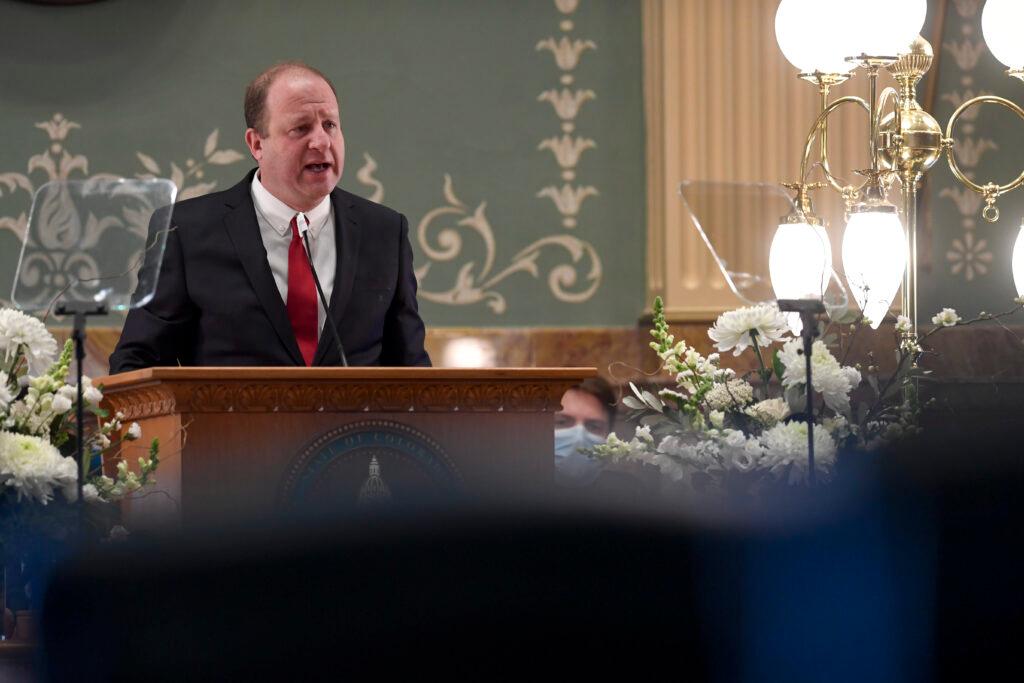
‘Safety is relevant to every Coloradan’
The issue of public safety could reverberate up and down the ballot this year; Democrats are trying to defend their control of every major statewide office, as well as its majorities in the state Senate and House.
And while criminal justice policy is a state and local level issue, that doesn’t mean it won’t be a factor in federal races, too.
“Just like education, you have to localize the issue,” said Republican political consultant Zack Roday, whose company is active in one of Colorado’s congressional races. For instance, Roday said, “education is decided at the state level, but in federal races, it's very relevant.”
Some of the most contested races this year will be at the congressional level. Colorado has two open House seats: CO-7 where incumbent Democrat Ed Perlmutter is retiring and CO-8, the state’s newest and most competitive seat gained through redistricting and population growth.
“Safety is relevant to every Coloradan, right?” said Roday. “That is a fundamental piece of what you expect of government: to keep you safe, your community safe, your street safe. And so whoever gives voice to that, whoever's looking to lead on that issue is going to be rewarded by voters.”
Colorado Republicans staked their claim on public safety early, releasing a platform last summer that names “a skyrocketing crime rate” as one of the top three concerns facing the state, along with education and the cost of living.
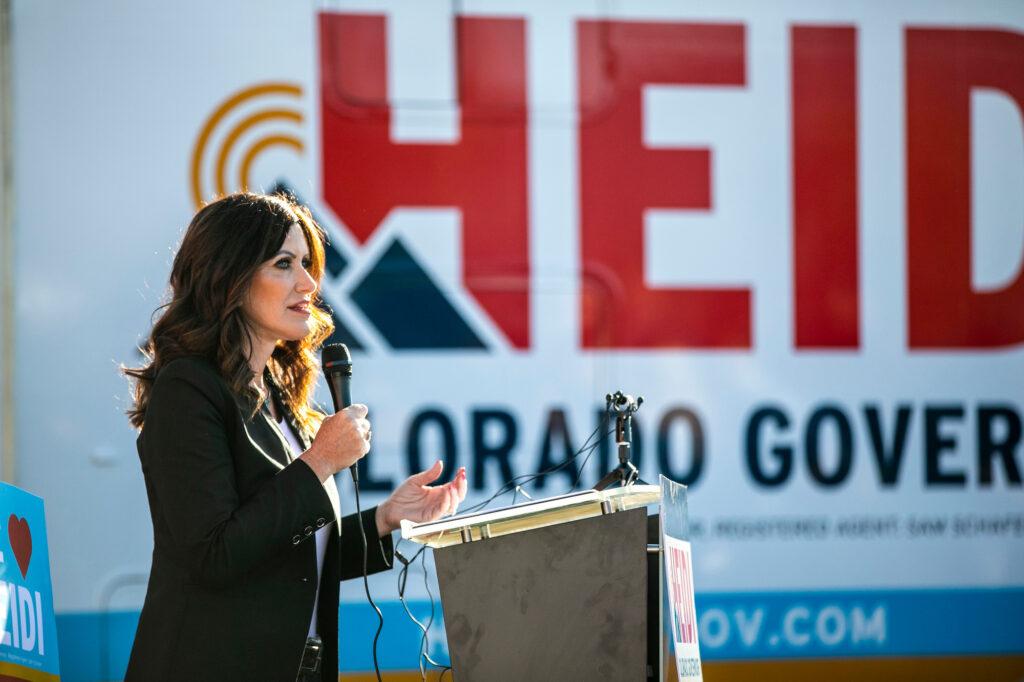
Heidi Ganahl, one of the Republican candidates for governor, has stated she wants to fire the parole board and move the state toward “truth in sentencing,” a conservative priority that reduces the use of early parole and credits for good behavior, which can reduce time spent in prison.
“While I believe that rehabilitation is important, we've still got to make the victims our first priority and you know, have some tough love about offenders,” she said in an interview.
But Democrats certainly aren’t willing to concede the issue to the GOP. Polis, who’s up for reelection in the fall, has pledged to make Colorado one of the “top ten safest states.” In mid-February, he joined Democratic state lawmakers to unveil what they billed as a “comprehensive” plan to do that.
It involves spending about $113 million in federal COVID relief money on things like hiring and retaining police officers, supporting victims of crime and funding “co-responders” who specialize in mental health crises.
Polis previewed the package in his State of the State address, calling it “a responsible public safety plan that builds on historic legislation of years past, gives much-needed support and funding to local law enforcement while also investing in community-based approaches and organizations that can help prevent violent crime from occurring in the first place.”
And when it comes to the past legislation that is now being blamed for rising crime, Democrats are also trying to highlight the bipartisan nature of many of the reforms that are now coming under attack.
“It's time to kind of quit making Democrats alone explain the bipartisan bills that happened,” said Sara Loflin, the executive director of Progress Now Colorado, a progressive organization that works on political races and policy.
“I think that Democrats are positioned to talk about the fact that they are the ones bringing common sense solutions rather than divisive games," Loflin said, "and they're bringing solutions that are responsive to the people of Colorado.”
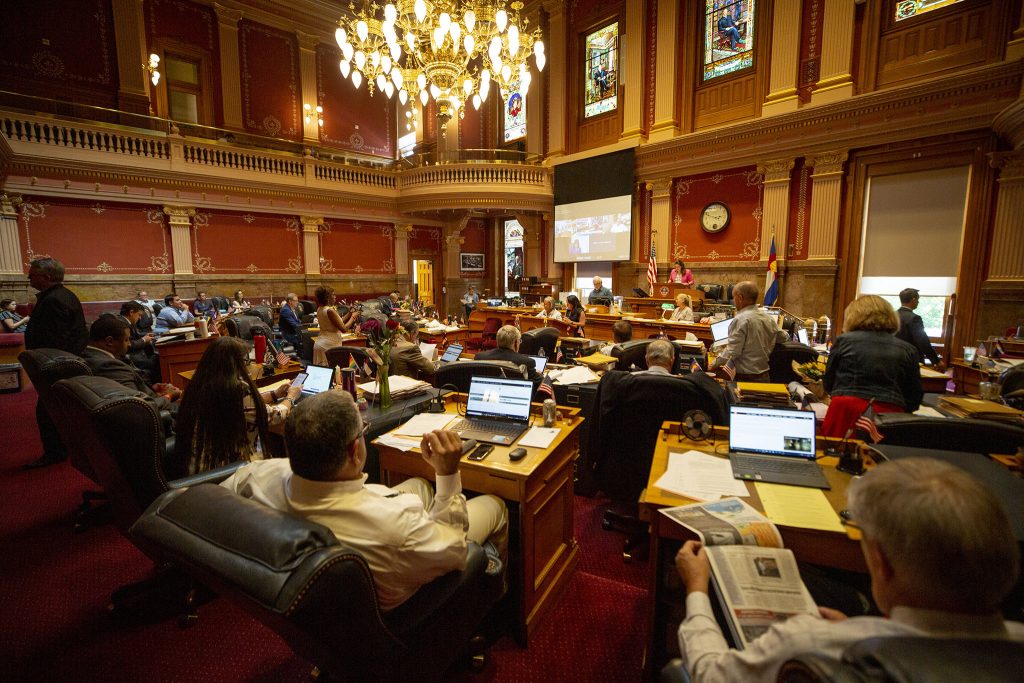
One afternoon in the Senate that shows how divisive justice reform has become
The first bill introduced at the start of a new legislative session carries a certain symbolic weight; the party in control often uses it to highlight one of their top priorities for the year. In the Senate this year, that honor went to a measure that aims to help local communities fight crime through improvements in troubled neighborhoods.
SB-001, would set aside about $10 million in local grants for things like better lighting in alleyways. In the realm of public safety and criminal justice reform it’s not seen as especially controversial.
Yet Republicans and Democrats used the bill’s first hearing, which lasted about four hours, to highlight many of the larger political and policy arguments they’ll be making this election season as they try to frame the issue.
Republican Sen. Larry Liston focused on a provision in the bill that would ban the money from being used to hire more law enforcement officers, using it as a chance to bring up the movement to defund the police.
“I'm just curious, with everything that went on in Aurora the last couple, three years. Did you support the Defund Police movement at all?” he asked Aurora councilwoman Angela Lawson after she testified in favor of SB-001.
“No, I did not. Senator,” said Lawson.
Republican Sen. Barbara Kirkmeyer, who is running in the GOP primary for CO-8, said it was clear Democrats had looked at the polls and decided they needed to appear to be taking on crime. And she derided the bill’s potential to have an impact.
“Do you think that we should prioritize this over better training for law enforcement officers, recruitment and retention of law enforcement officers?” She asked at one point. “Where would it fall on the list of priorities for you?”
Democratic sponsor Sen. Janet Buckner emphasized that she wants to take a collaborative approach with law enforcement and other community members on public safety. After the hearing she lamented how political the issue has become; to her surprise, the bill passed the committee on a party line vote, without any Republican support.
It also had pushback from some criminal justice reform advocates who said there wasn’t enough community outreach and worry the local policies could displace vulnerable populations.
“We're addressing every piece of safety that we can to try to put all of our thoughts together and our minds together to come up with a solution because no one's been able to find a solution,” Buckner said.








